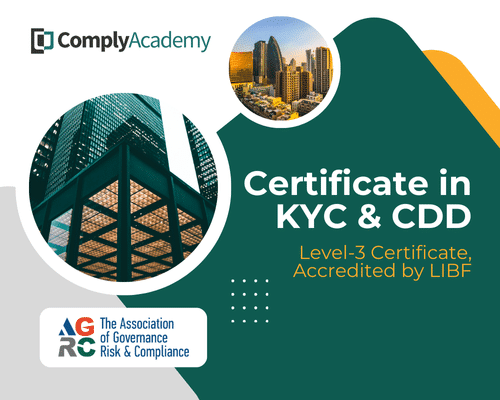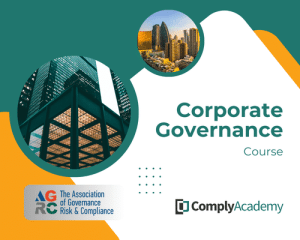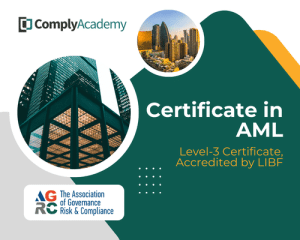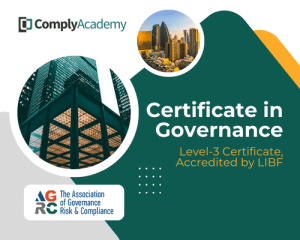The AGRC Certificate in KYC and CDD equips professionals with the tools and knowledge needed to implement effective Know Your Customer (KYC) and Customer Due Diligence (CDD) processes. This certificate is essential for professionals working in financial services, compliance, or legal environments to ensure adherence to global Anti-Money Laundering (AML) and Counter-Terrorist Financing (CTF) regulations.
Key Benefits:
- Gain 1-year free membership at the Association of Governance, Risk & Compliance (AGRC).
- Earn an accredited certificate recognized by The London Institute of Banking & Finance (LIBF).
- Build a robust understanding of KYC/CDD principles and their application in onboarding and monitoring processes.
The course focuses on:
- Understanding the importance of KYC and CDD in managing AML risks.
- Applying a risk-based approach to onboarding and monitoring processes.
- Addressing compliance challenges related to beneficial ownership and politically exposed persons (PEPs).
- Leveraging technology and innovative solutions to enhance KYC and CDD practices.
What You’ll Learn:
- Business-wide risk assessments and how they influence KYC/CDD strategies.
- The risk-based approach to CDD and customer classification.
- Best practices for client onboarding and ongoing monitoring.
- Enhanced Due Diligence (EDD) for high-risk clients, PEPs, and other complex scenarios.
Learning Outcomes:
By the end of the course, participants will:
- Understand the key principles and global standards for KYC and CDD.
- Apply a risk-based approach to client onboarding and monitoring.
- Identify and manage high-risk scenarios, including those involving PEPs and complex structures.
- Leverage technology to optimize KYC/CDD processes.
- Gain practical insights into regulatory expectations and compliance requirements.
Target Audience:
This course is ideal for:
- Compliance and AML professionals.
- Risk officers and legal professionals involved in client onboarding.
- Individuals seeking foundational knowledge of KYC and CDD processes.
No prior knowledge is required, though participants should have a strong educational background and proficiency in English.
Format:
- Self-paced online interactive learning with 15 hours of study time.
- Includes analysis of 5 practical case studies.
- Flexible registration: Start anytime and study at your own pace.
- Assessment via online multiple-choice exams.
What’s Included:
- 1-year free AGRC membership.
- Online exam and AGRC Certificate upon completion.
- Access to all course materials, practical case studies, and online support.
Completion Requirements:
- Pass unit tests (33 multiple-choice questions) with a 70% pass mark.
- Pass the final exam (40 multiple-choice questions) with a 70% pass mark (two attempts allowed).
- Unit tests are 10 minutes each, and the final exam is 60 minutes.
Accreditation and CPD Recognition:
The syllabus is verified by external subject matter experts and accredited by financial training bodies, such as CISI and ACAMS, for 10 CPD units.
Registration and Access:
To register, click on the Get this course button to pay online. Alternatively, contact us at info@comply.academy to request an invoice.




